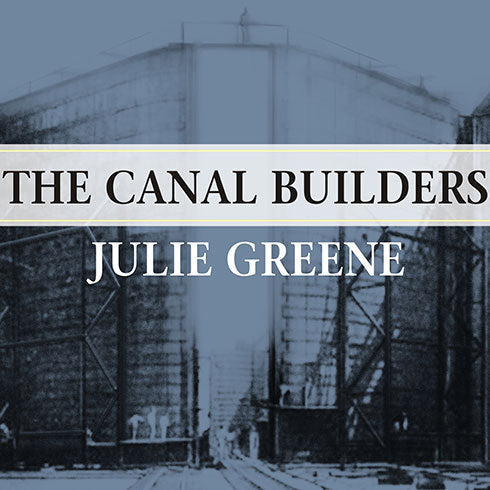
The Canal Builders
By
Julie Greene
Read by
Karen White
Release:
02/23/2009
Release:
02/23/2009
Release:
02/23/2009
Release:
02/23/2009
Runtime:
17h 3m
Runtime:
17h 3m
Runtime:
17h 3m
Quantity:
“A telling portrait of exploitation, privilege, and insularity, backed by a mountain of fresh research.”
New York Times
The Panama Canal has long been celebrated as a triumph of American engineering and technology. In The Canal Builders, Julie Greene reveals that this emphasis obscures a far more remarkable element of the canal's construction—the tens of thousands of workingmen and -women who traveled from around the world to build it. Drawing on research from around the globe, Greene explores the human dimensions of the Panama Canal story, revealing how it transformed perceptions of American empire at the dawn of the twentieth century.
For a project that would secure America's position as a leading player on the world stage, the Panama Canal had controversial beginnings. When President Theodore Roosevelt seized rights to a stretch of Panama soon after the country gained its independence, many Americans saw it as an act of scandalous land-grabbing. Yet Roosevelt believed the canal could profoundly strengthen American military and commercial power while appearing to be a benevolent project for the benefit of the world.
But first it had to be built. From 1904 to 1914, in one of the greatest labor mobilizations ever, working people traveled to Panama from all over the globe—from farms and industrial towns in the United States, sugarcane plantations in the West Indies, and rocky fields in Spain and Italy. When they arrived, they faced harsh and inequitable conditions: labor unions were forbidden, workers were paid differently based on their race and nationality (with the most dangerous jobs falling to West Indians), and anyone not contributing to the project could be deported. Yet Greene reveals how canal workers and their families managed to resist government demands for efficiency at all costs, forcing many officials to revise their policies.
The Canal Builders recounts how the Panama Canal emerged as a positive symbol of American power and became a critical early step towards twentieth-century globalization. Yet by chronicling the contributions of canal workers from all over the world, Greene also reminds us of the human dimensions of a project more commonly remembered for its engineering triumphs.
For a project that would secure America's position as a leading player on the world stage, the Panama Canal had controversial beginnings. When President Theodore Roosevelt seized rights to a stretch of Panama soon after the country gained its independence, many Americans saw it as an act of scandalous land-grabbing. Yet Roosevelt believed the canal could profoundly strengthen American military and commercial power while appearing to be a benevolent project for the benefit of the world.
But first it had to be built. From 1904 to 1914, in one of the greatest labor mobilizations ever, working people traveled to Panama from all over the globe—from farms and industrial towns in the United States, sugarcane plantations in the West Indies, and rocky fields in Spain and Italy. When they arrived, they faced harsh and inequitable conditions: labor unions were forbidden, workers were paid differently based on their race and nationality (with the most dangerous jobs falling to West Indians), and anyone not contributing to the project could be deported. Yet Greene reveals how canal workers and their families managed to resist government demands for efficiency at all costs, forcing many officials to revise their policies.
The Canal Builders recounts how the Panama Canal emerged as a positive symbol of American power and became a critical early step towards twentieth-century globalization. Yet by chronicling the contributions of canal workers from all over the world, Greene also reminds us of the human dimensions of a project more commonly remembered for its engineering triumphs.
Release:
2009-02-23
2009-02-23
2009-02-23
2009-02-23
Runtime:
Runtime:
Runtime:
Runtime:
17h 3m
17h 3m
17h 3m
17h 3m
Format:
audio
audio
audio
audio
Weight:
1.2 lb
0.0 lb
1.2 lb
0.55 lb
Language:
English
ISBN:
9781400110674
9781400180677
9798200125449
9798200125456
Praise
